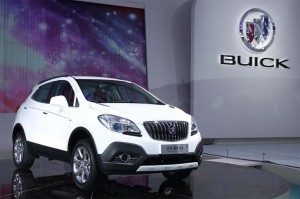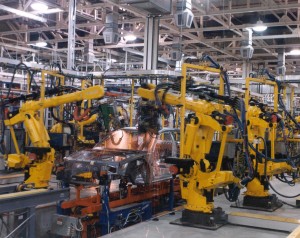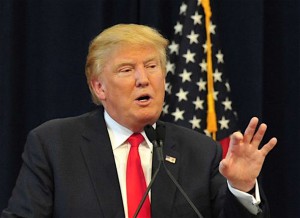General Motors may be finding itself caught between the proverbial rock and a hard place – or, more precisely, between China and the incoming Trump Administration.
GM’s joint venture with Shanghai-based SAIC is under investigation for possible anti-trust violations, according to several news reports out of China, with the well-connected China Daily newspaper today indicating it will be hit with a penalty for monopolistic behavior.
The reports come at a time some sources indicate is anything but coincidental. China has been openly critical of incoming President Donald Trump’s proposed trade policies and efforts to bring manufacturing back to the U.S. But the communist country has been especially harsh in its response to the president-elect’s decision to reengage with Taiwan, potentially ending a decades-long “one China” policy.
(Trump EPA pick could upend mileage, emissions policies. Click Here for more.)
Chinese media, especially those considered closely linked to the government, have been sounding alerts about potential shifts in trade policy by the Trump Administration. The China Daily, for one, has posted an editorial warning the new president should not be “trying to gain an upper hand in what is essentially a win-win relationship.”
Earlier this month, another editorial in the South China Daily hinted at the possibility of a smartphone price war should Apple respond to Washington pressure to bring production of its iPhone back to the States.
But is the decision to fine General Motors an early shot over the bow, a month before the new president is inaugurated?
Long-time China auto analyst and consultant Michael Dunne, of Dunne & Co., said the fine itself is “not connected,” but the timing likely is.
GM is one of a number of foreign-owned carmakers that has come under investigation by China’s National Development and Reform Commission over the last several years for possible price fixing on both new vehicles and replacement parts. Daimler’s offices were raided. Several manufacturers have been fined, including Audi, which paid a $40 million fine.
“Dealers in China are gaining more power and pushing back against pricing demands from manufacturers,” the Asian-based Dunne told TheDetroitBureau.com.
But the Chinese automotive veteran quickly added that the timing of the GM fine is suspect. It appears to be an effort “to show some color, as they say in China,” a clear indication that the Beijing government is ready to get tough if the new administration takes a path the Chinese don’t like.
(China thumbs nose, raises tariffs on imported luxury cars. Click Here for the latest.)
Even if the move against GM is entirely coincidental, it is likely to lead observers to watch more closely how China treats foreign automakers, especially those from the U.S.
General Motors, in particular, has a lot to lose if it were to get caught up in a U.S.-China dispute. The Asian giant is not only the world’s largest automotive market but the Detroit maker’s biggest single outlet. For the first 11 months of this year, GM set a new record with sales of 3.435,788 vehicles, up 8.5% year-over-year.
That included record sales for the Buick and Baojun brands, as well as luxury marque Cadillac. While Caddy sales have been slumping in the home U.S. market, the brand has been setting global records this year thanks to Chinese demand.
GM isn’t the only vulnerable U.S. automotive brand. Though late to enter the Chinese market, it is growing fast, topping 1 million sales by the end of November – a month faster than in 2015. Fiat Chrysler Automobiles recently launched its own operations in China, focusing initially on the production of Jeeps. That deal took years to lock down, and company officials have privately told TheDetroitBureau.com they worry any jitters in U.S.-China relations could impact future expansion plans.
In a clear reference to then-candidate Donald Trump’s campaign slogan, the China Daily editorial declared that, “For the American economy to be great again…the U.S. needs to cement its economic relations with China, rather than destroy them.”
(Ford, GM setting record pace in China. Click Here for the story.)



